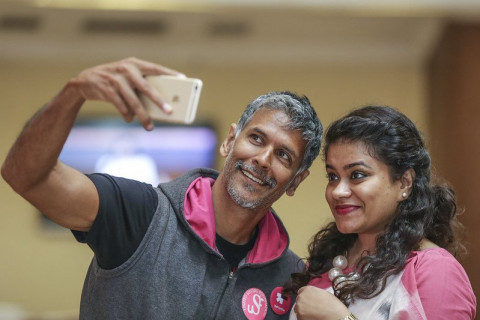India is a colourful, complex and multifaceted country, full of paradoxes and contradictions.
Political and economic reforms have stimulated the growth of the state since 1991, with India now the fifth-strongest economy in the world.
These factors have a significant impact on doing business in India and the foundation of business relationships.
Let's explore a few areas.
Features of Business Relationships in India
If there is one thing you need to learn about working successfully with Indian business culture, it’s that relationships matter. Personal relationships; not just professional ones.
Indians like to know who they are working with. For this reason, they can ask what can appear to be very personal questions such as about your salary, your marital status and details of your private life.
It’s these personal touches combined with generous small talk that will help Indian business professionals get to know you better.
Remember, they are generally interested in a long-term cooperation based on trust and continuous improvement of your business relationship.
Indian Culture and Business Management
One of the reasons relationships are valued so much is because Indian society is collective.
Families, wider networks and alliances act like a social glue meaning that making and maintaining connections is crucial.
This also impacts business management in that Indian business etiquette dictates that there should a hierarchy in an organisation or team. This governs how information is shared, how decisions are made and how people are managed.
‘Western cultures’ tend to be more individualistic but in India, on a business, cultural and social level, there is a strong sense of working as a group. Although people do take personal responsibility, ultimately, it’s seen as something everybody shares in.
Culture, Communication & Context
In Western cultures, communication tends to be more direct in that people tend to say what they mean. People focus on using the correct wording to convey message and meaning.
Indian business culture has created a communication style that is much more contextual. This means that words alone can’t convey meaning and messages. People use other ways such as body language, intonation, tone of voice and other non-verbal communication factors.
All of this is highly dependent on context – i.e. what is being said, by who and where?
For example, if you invite an Indian business colleague out for lunch in front of other people, they would never refuse even if it was impossible for them to attend the lunch. Why? Because in the context you asked them the question it would appear rude to refuse. As a result, they may say ‘yes’ only to cancel the lunch later on.
Religion and Etiquette
A huge factor that influences etiquette in India is religion. India has Hindus, Sikhs, Muslims, Buddhists, Jains and many other religious groups. All have slightly different customs when it comes to things like behaviour, food and holidays.
Hinduism is considered to be the main religion of India and is practised by more than 80% of the country's population.
Hinduism acts as a backdrop for life in the Indian psyche. For example, Hindus believe that God can come to a person at any time and in any guise, so a guest, especially an uninvited one, should always be received very warmly!
Most Hindus are vegetarians so be careful if you plan on dining out or hosting colleagues that you can cater for their needs.
Features of Business Etiquette in India
• English is the lingua franca of business in India
• Formal but friendly relationships with Indian colleagues or clients
• Shared connections have a hugely positive impact on your status
• Physical presence in India is essential to build trust
• Cultural differences exist between the different regions of India
These are just some of the basic concepts that will help you integrate more successfully into the business environment in India.
If you want to be competitive in the hugely dynamic Indian market, then you should consider taking an India cross cultural training course to successfully realize all your ambitions.
Image by UN Women (CC BY-NC-ND 2.0)
